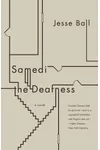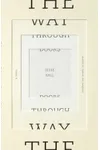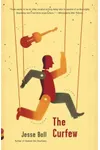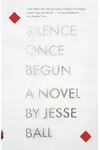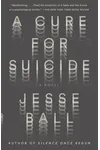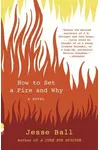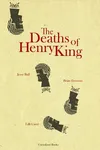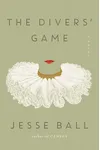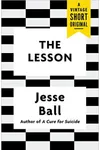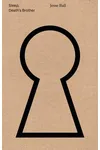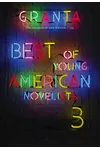Picture an American storyteller who crafts haunting, spare tales that linger like a half-remembered dream—meet Jesse Ball! Born in Port Jefferson, New York, this novelist and poet has captivated readers with his unique blend of absurdity and emotional depth, earning comparisons to literary giants like Jorge Luis Borges and Italo Calvino. From his bestselling novel Census to his poetic debut March Book, Ball’s work explores the human psyche with a deft, philosophical touch.
With a career spanning over fifteen books, Ball’s evocative style and bold social commentary have made him a cult favorite and a critical darling. His deeply personal narratives, often inspired by his life experiences, invite readers to ponder love, loss, and the complexities of existence. Ready to dive into the world of Jesse Ball? Let’s explore his journey!
The Making of Jesse Ball
Jesse Ball was born on June 7, 1978, into a middle-class Irish-Sicilian family in Port Jefferson, New York. Raised by a father who worked in Medicaid and a mother who nurtured his love for literature in libraries, Ball’s childhood was shaped by creativity and connection. His older brother, Abram, who had Down’s syndrome, profoundly influenced Ball’s worldview, inspiring themes of empathy and vulnerability in his writing. A hyperactive yet gifted child, Ball bounced between special education and advanced classes, even mailing monster drawings to the Queen of England at age five!
After graduating from Port Jefferson High School, Ball studied at Vassar College and later earned an MFA at Columbia University. There, he met poet Richard Howard, who championed his talent and helped publish his first poetry collection, March Book, with Grove Press at just 24. This early success launched Ball’s career, setting the stage for his distinctive literary voice.
Jesse Ball’s Unforgettable Stories
Ball’s writing is a mesmerizing tapestry of minimalism and philosophical depth, often blending absurdity with poignant human truths. His debut novel, Samedi the Deafness (2007), is a surreal mystery about a man unraveling a conspiracy in a hospital for liars, showcasing Ball’s knack for narrative ambiguity. The Way Through Doors (2009) weaves a labyrinthine tale of a man searching for meaning, earning praise as one of The New Yorker’s top books of the year.
Perhaps his most celebrated work, Census (2018), is a heartfelt tribute to his late brother, Abram. This novel follows a dying father and his son with Down’s syndrome on a road trip as census takers, exploring love and loss with tender precision. It won the Gordon Burn Prize and was lauded for its emotional resonance. The Divers’ Game (2019), a dystopian fable about a society divided by class, landed on The New Yorker’s Best Books of 2019 list, highlighting Ball’s incisive social critique.
Ball’s spare style, often compared to Borges and Calvino, shuns tidy endings, embracing life’s randomness and complexity. His works, translated into over a dozen languages, challenge readers to confront uncomfortable truths while finding humor in the absurd—like his whimsical description of the Olympics as a chaotic blend of historical events!
Why Jesse Ball Matters
Jesse Ball’s impact lies in his ability to weave personal and universal stories that resonate deeply. His exploration of marginalized voices, inspired by his brother’s life, challenges societal norms and amplifies empathy. As a professor at the School of the Art Institute of Chicago for nearly two decades and now at the University of Virginia, Ball inspires aspiring writers to embrace ambiguity and authenticity.
His accolades, including the Plimpton Prize, a Guggenheim Fellowship, and Granta’s Best Young American Novelists honor, underscore his influence. Ball’s work invites readers to question systems—be it bureaucracy or justice—while celebrating the beauty of human connection. His cult following and critical acclaim prove that his voice, though unconventional, is vital in contemporary literature.
About Jesse Ball
- Born: June 7, 1978, Port Jefferson, New York
- Key Works: Census, Samedi the Deafness, The Divers’ Game, March Book
- Awards: Gordon Burn Prize, Plimpton Prize, Guggenheim Fellowship
- Fun Fact: He once suggested all Americans should periodically be incarcerated as a civic duty!
Snag Census or Samedi the Deafness and dive into Jesse Ball’s haunting, thought-provoking world—your bookshelf will thank you!
